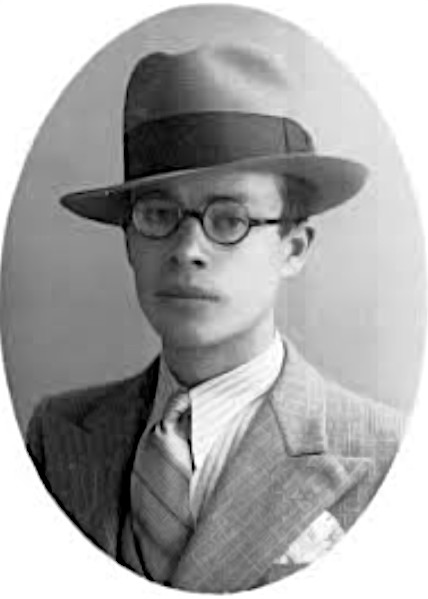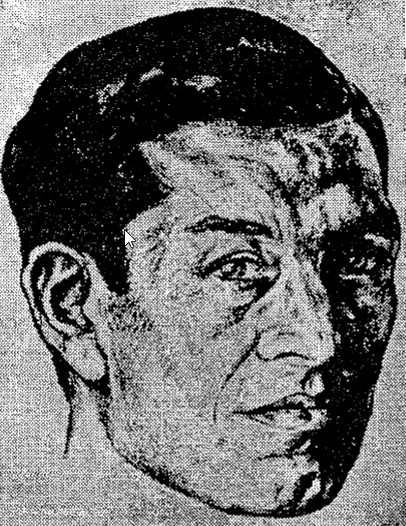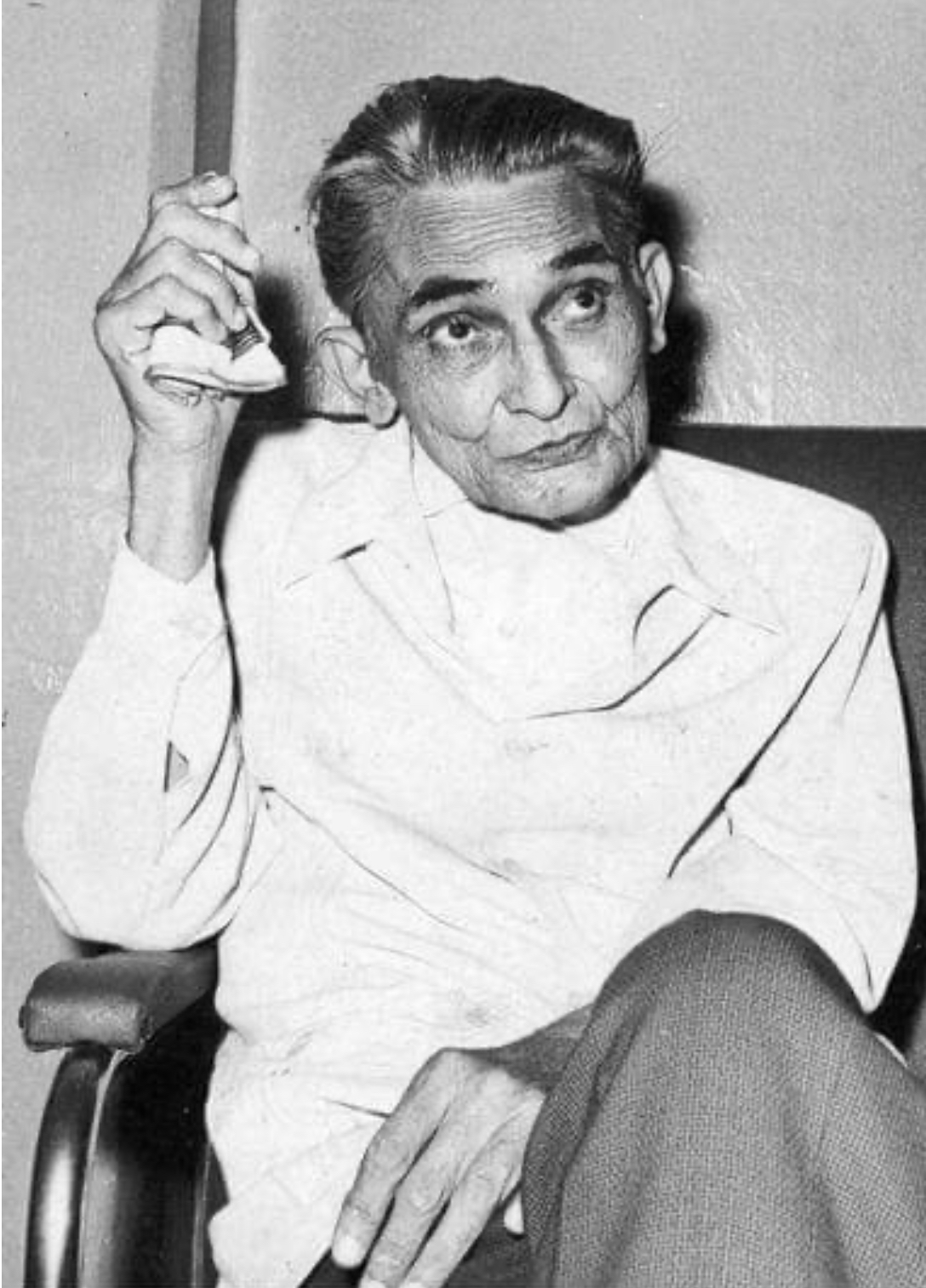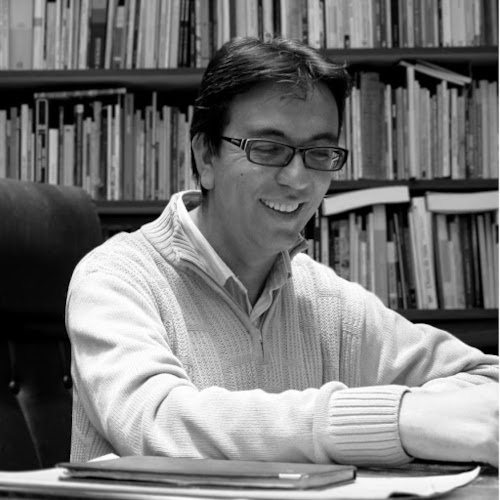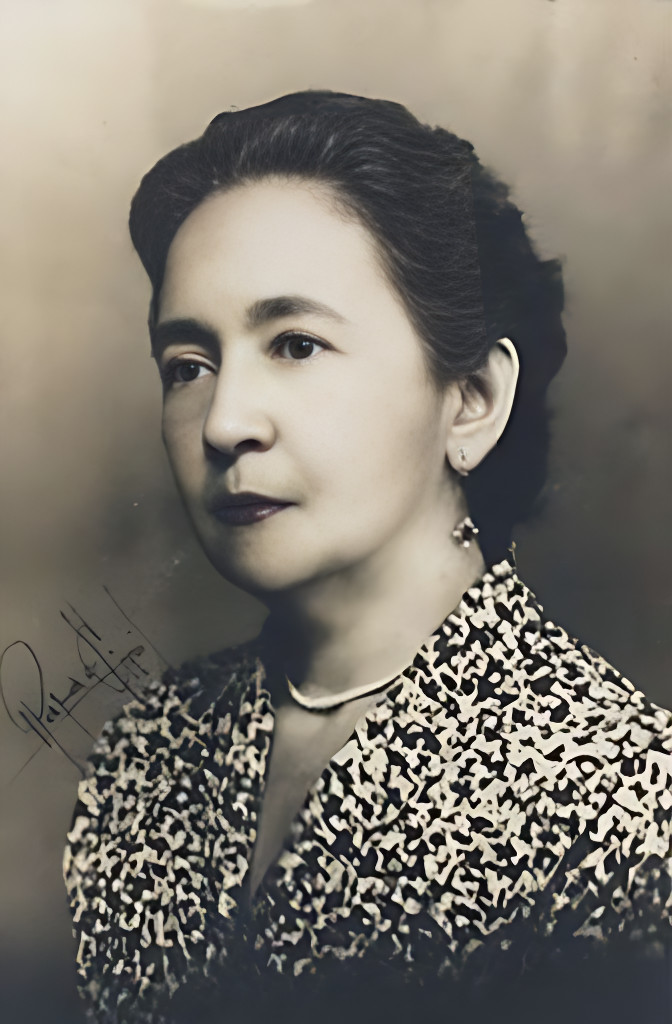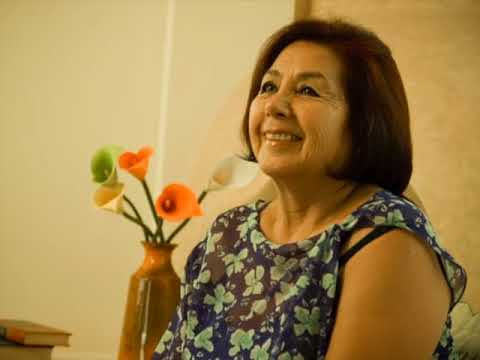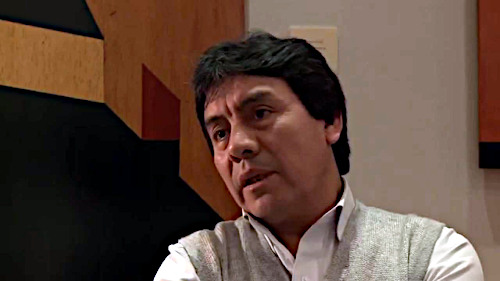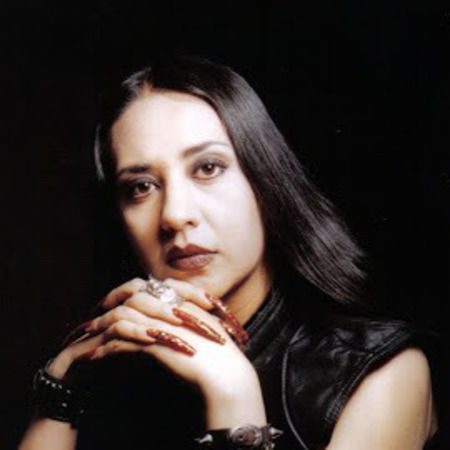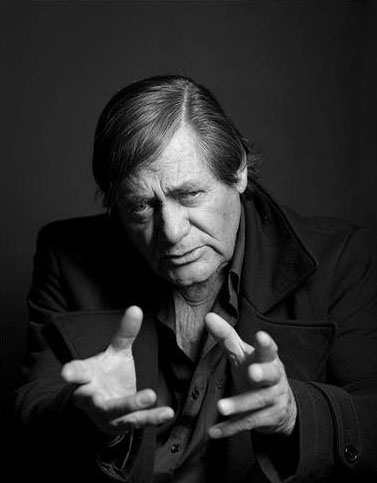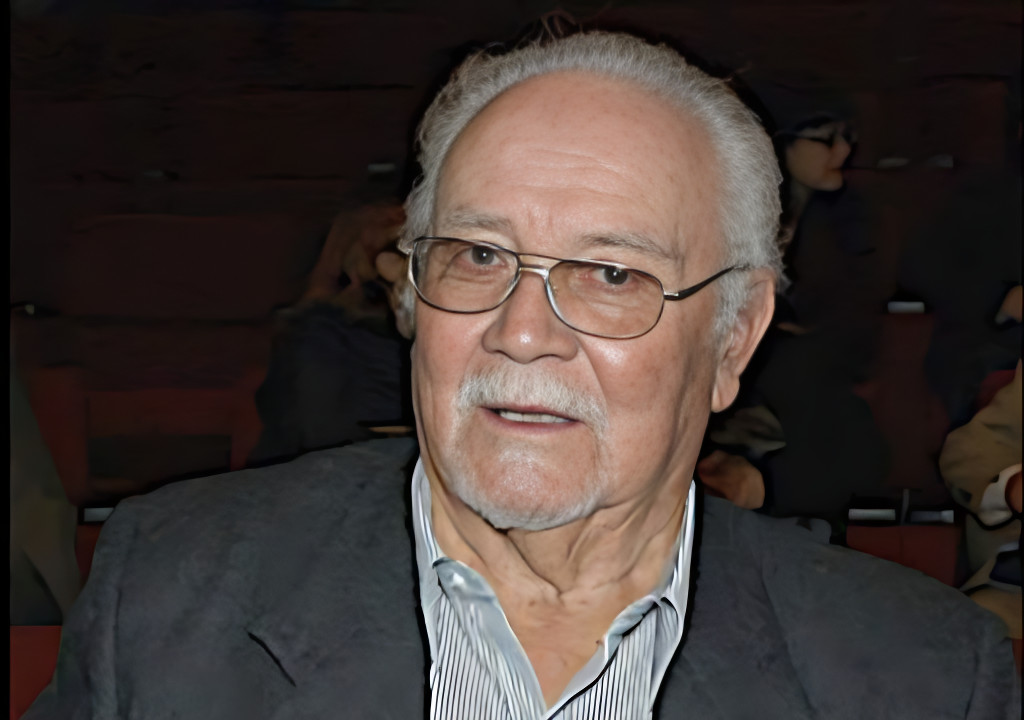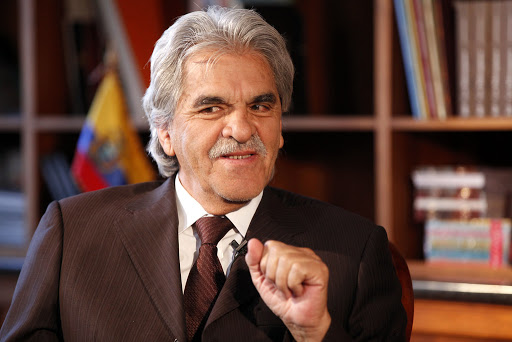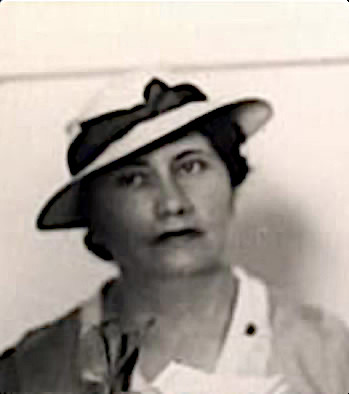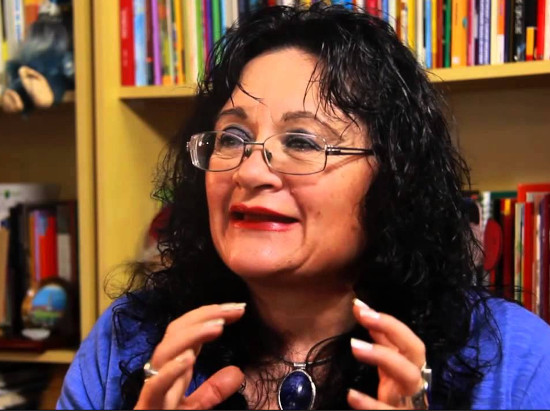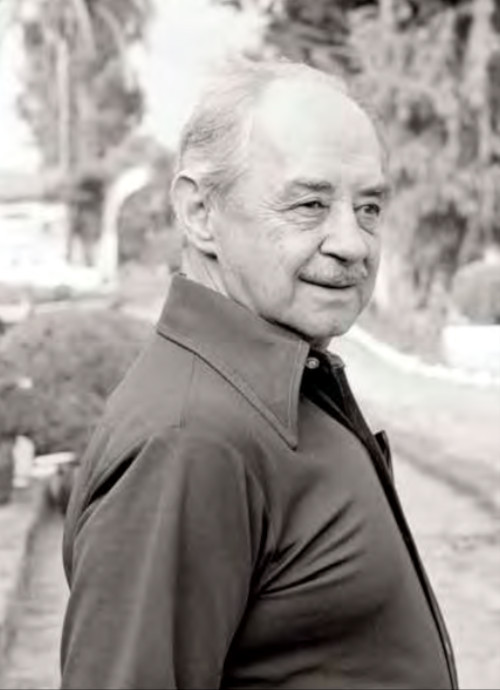Atanasio Viteri Karolys (Latacunga, October 29, 1908-1965) was an essayist, novelist, poet, journalist and university professor. He wrote for the newspapers El Día, La Tierra and El Telégrafo. He was four times the director of the School of Journalism of the Central University of Ecuador, vice president of the National Union of Journalists, president of the Press Freedom Commission of the IV Inter-American Press Congress (Bogotá, 1946) and press secretary of the National Assembly of 1945. He is one of the “poets of Elan,” a group of Ecuadorian poets born between 1905 and 1920 representing the neosymbolism or lyrical vanguard movement.
Continue reading “Atanasio Viteri”Author: richard
José Alfredo Llerena
José Alfredo Llerena (Guayaquil, 1912—Quito, 1977) was a distinguished Ecuadorian poet, journalist, fiction writer, art critic, and essayist. A member of the Elan literary group, he is recognized as a key figure in Ecuador’s modernist movement. His most notable work, the poetry collection “Agonía y paisaje del caballo” (1934), features 18 of his poems. In addition to poetry, he wrote the novel “Oleaje en la tierra” (1955) and the short story collection “Segunda vida de una santa” (1953). His contributions to nonfiction include “Aspectos de la fe artística” (1938) and “Ecuador, perfil de su progreso” (1960).
Continue reading “José Alfredo Llerena”Himno de Los Ríos, Ecuador (Hymn of Los Rios, Ecuador)
Hymn of Los Ríos Province, Ecuador. Lyrics by poet Aurora Estrada y Ayala, Music by Alcides Millán Mendoza.
Continue reading “Himno de Los Ríos, Ecuador (Hymn of Los Rios, Ecuador)”Enrique Segovia
Enrique Segovia Antepara (Guayaquil, 1901-Guayaquil, December 6, 1967) was an Ecuadorian poet. Known for his work, “América,” published in 1939, Segovia had a tumultuous life marked by addiction to morphine, cocaine, and alcohol. Rodolfo Pérez Pimentel, a prominent chronicler of Guayaquil, recalled seeing Segovia in their neighborhood during his childhood, describing him as a pale, thin, and poorly dressed figure resembling a zombie. According to writer José Ayala Cabanilla, Segovia was frequently spotted wandering the streets barefoot, clad in tattered clothing, under the influence of drugs or alcohol. To make a living, he would offer his services as a writer of love letters for a sucre each and Quinceañera speeches for 10 sucres each. A few months prior to his death, the Guayas branch of the House of Ecuadorian Culture published “Mis mejores poesías” (My Best Poems), a collection of Segovia’s poems written between 1920 and 1967.
Continue reading “Enrique Segovia”Xavier Oquendo Troncoso
Xavier Oquendo Troncoso (Ambato, 1972) is an Ecuadorian poet, editorial writer, editor and professor. He has published over 11 titles, including poetry, short stories, children’s literature and anthologies of young writers from Ecuador. In 1993 he won the Pablo Palacio Short Story Award and the National Poetry Award. In 1999 the city of Ambato awarded him the Juan León Mera Award for all his literary work. His book “Salvados del naufragio” (2005) is a compilation of his poetry from 15 years of work up to the year in which it was published. His poems appeared in English translation in a book entitled “Poems That Love Me” (2016), translated by Gordon E. McNeer. Some of his poems have also been translated into Italian and Portuguese.
Continue reading “Xavier Oquendo Troncoso”Aurora Estrada y Ayala
Aurora Estrada y Ayala de Ramírez Pérez (Pueblo Viejo Canton, Los Ríos Province, November 17, 1901 – Guayaquil, March 12, 1967) was an Ecuadorian poet, columnist, narrator, educator and politician. She is considered a major figure in Ecuadorian literature. Among her best regarded works are: Himno a la Provincia de Los Ríos, Himno al Colegio Aguirre Abad, and Canto de las Trabajadoras. In 1922 she founded and was the editor in chief of Potreo, a monthly magazine which published some of Ecuador’s best young poets of the time, such as Jorge Carrera Andrade, Hugo Mayo, Francisco Fálquez Ampuero, as well as poets from other countries, such as the future Nobel laureate Gabriela Mistral from Chile. Estrada only published 2 books during her lifetime, Como el incienso (1925) and Tiniebla: veinte trenos y una canción de cuna (1943). An anthology containing many of Estrada’s poems was published by Isabel Ramírez Estrada in Aurora Estrada i Ayala, estudio biográfico-literario y antología (1976). Most of Estrada’s poems were published in magazines and newspapers in and outside of Ecuador which have not yet been collected and published in a “complete” collection.
Continue reading “Aurora Estrada y Ayala”Ana María Iza
Ana María Iza (Quito, 1941-2016) was an Ecuadorian poet, she worked as a journalist, specifically on the radio. Her poems appeared in some of the most important poetry anthologies of Ecuador and Latin America, such as: Poesía Viva del Ecuador (1990), Diccionario de literatura española e hispanoamericana (1993), Joyas de literatura ecuatoriana (1993), and Between the silence of voices (1997). In 2015 she was honored in Poetry in Parallel Zero, an event that brings together great figures of literature to Ecuador for a week. In 2016 she was honored with a medal by the National Assembly of Ecuador.
Continue reading “Ana María Iza”Ramiro Caiza
Victor Ramiro Caiza Guamán (Machachi, April 19, 1963) is an Ecuadorian poet, essayist and cultural promoter. He is the author of over 18 books of poetry and essays. He is the former president of the House of Ecuadorian Culture’s branch in Barcelona, Spain. He has served as secretary of the Association of Poets and Writers of Catalonia, Spain. He founded and was the president of the House of Ecuadorian Culture’s branch in the Mejía Canton of Ecuador. His latest books are Mejía Festivo (2020) and Haikus Cotidianos (2020). Caiza currently lives in Quito, Ecuador.
Continue reading “Ramiro Caiza”Mayari Granda Luna
Mayari Granda Luna (Quito, 1977) is an Ecuadorian poet and a literary critic. Her poetry has appeared in several magazines, including Hoja Verde in Chile and Eskeletra in Quito. Granda Luna has also authored poetry books such as “Palabras con el eje roto” (1995) and “Noctivago” (1998).
Continue reading “Mayari Granda Luna”Antonio Ordóñez
Antonio Ramiro Ordóñez Andrade (Quito, January 23, 1943) is a poet, dramaturg, theater actor and director. He was a founder of the “Tzántzicos” group (1961-1969), actor and director of the Ensayo theater, actor of the Ecuadorian popular theater, director of the School of Dramatic Art of the House of Ecuadorian Culture (2 years), director of the School of Theater of the Faculty of Arts from the Central University of Ecuador (11 years), professor at the Faculty of Arts of the Central University (32 years), member of the Ecuadorian Institute of Theater, member of the General Board of the House of Ecuadorian Culture. Many of his early poems were published in Pucuna magazine in the 1960s. In 2014 the House of Ecuadorian Culture in Quito published his only book of poetry El demonio en el fondo de los ojos.
Continue reading “Antonio Ordóñez”Alfonso Murriagui
Alfonso Murriagui Valverde (Quito, 1929-January 19, 2017) was an Ecuadorian poet, fiction writer, dramatist, journalist, and an exponent of communism. Murriagui‘s poetry is marked by political and revolutionary ideology. For several years he was an editor of En Marcha, the official weekly periodical of the Central Committee of the Communist Marxist Leninist Party of Ecuador. In 1961 he was a founding member of the Tzántzico group of the 1960s. That same year he began writing for Pucuna magazine. In 1965 he became vice president of the Association of Young Writers of Ecuador. He was the director of public relations of the Luís Vargas Torres de Esmeraldas Technical University from 1972-1976. He was the director of cultural diffusion of the Philosophy Department of the Central University of Ecuador from 1985-1992). During the last 15 years of his life he was the editor of the culture section of the leftist weekly periodical Opción.
Continue reading “Alfonso Murriagui”Raúl Pérez Torres
Raúl Pérez Torres (Quito, May 11, 1941) is an Ecuadorian writer and cultural promoter. His short story collection En la noche y en la niebla won the Casa de las Américas Prize (Havana, Cuba) in 1980, one of Latin America’s oldest and most prestigious literary awards. In 1995 Pérez’ short story Sólo cenizas hallarás won the Juan Rulfo Prize (France) and the Julio Cortazar Prize. From 2000-2019, Pérez served as the president of the Ecuadorian House of Culture in Quito, and from 2017-2019 served as Ecuador’s Minister of Culture.
Continue reading “Raúl Pérez Torres”Adelaida Velasco Galdós
Adelaida Velasco Galdós (Guayaquil, 1894 – December 26, 1967) was an Ecuadorian writer, feminist, and humanist. She is recognized her dedication to Catholic Christian feminism. In 1932, Velasco co-founded the Legion of Popular Education alongside writer Rosa Borja de Icaza. This organization aimed to promote education and empower women in Ecuador. Additionally, in 1936, she represented Ecuador in the Inter-American Commission of the “Women’s International League for Peace and Freedom” in Washington D.C. Starting in 1939, Velasco initiated a campaign to nominate Gabriela Mistral, a renowned Chilean poet, for the Nobel Prize in Literature. Her efforts proved successful when Mistral became the first Latin American author to receive the prestigious award in 1945. Mistral later acknowledged in various interviews that it was Adelaida Velasco who had originally proposed her nomination for the Nobel Prize.
Continue reading “Adelaida Velasco Galdós”Leonor Bravo Velásquez
Leonor Bravo Velásquez (Quito, January 8, 1953) is an Ecuadorian children’s and young adult author. She has published 54 books, 44 of which are stories and novels that are available in various countries throughout Latin America and the United States, as well as major libraries specializing in children’s literature around the world. Her books “La biblioteca secreta de la Escondida” and “Dos cigüeñas, una bruja y un dragón,” are on the IBBY Honor List (International Board on Books for Young People).
Continue reading “Leonor Bravo Velásquez”Raúl Andrade Moscoso
Raúl Andrade Moscoso (Quito, October 4, 1905 – Quito, September 10, 1983) was an Ecuadorian journalist and dramatist. As a journalist, Andrade travelered throughout Mexico and Colombia, where he worked for the newspaper El Tiempo (Bogota, Colombia), and published his book “La internacional negra en Colombia,” a collection of articles on the crisis in Colombia. He was also the editor of El Comercio from 1954-1982. As a dramatist, Andrade published “Suburbio,” a romantic evocation on the suburbs of Quito. In 1983 the president of Ecuador conferred on Andrade the Eugenio Espejo Prize in Culture.
Continue reading “Raúl Andrade Moscoso”
